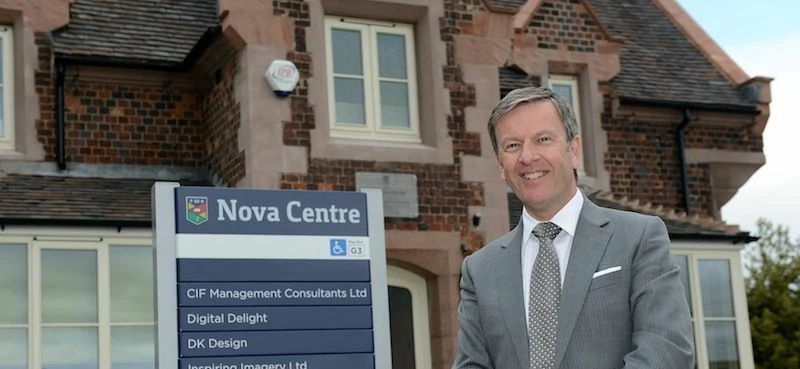
Partner Article
What makes a successful small business?
While a detailed business plan and extra finance can contribute to the success of a small business, according to experts from Keele University Science and Business Park (KUSBP), it’s often the personalities behind the business that determine real success.
David Webster, CEO of Hanley Economic Building Society, is a member of KUSBP’s Nova Centre panel and is part of the team responsible for identifying fledging businesses that will most benefit from the business support services on offer at the Centre which, as well as low cost office space, provides guidance from industry experts and access to academic knowledge, innovative research and specialist resources. Here, David explores the attributes that lead to success and why more businesses are turning to the Staffordshire business park.
Setting up a business today is more challenging than it was ten years ago, but achieving success isn’t as hard as many people are led to believe. While financial backing is critical for small businesses and something being addressed through schemes such as the government’s Funding for Lending initiative, it’s not necessarily the be-all-and-end-all for new enterprises. Instead, when it comes to getting a successful business off the ground, key personality traits such as drive and enthusiasm are fundamental attributes for any entrepreneur and are certainly something we look for when considering new tenants for the KUSBP’s Nova Centre.
As well as drive and enthusiasm, resilience - or grit - is something else that business owners need to have. Inevitably, every start-up will face setbacks during their journey, a point that’s perhaps more poignant given the current economic climate, but a resilience and a tenacious approach from the off can help secure success, even in tough market conditions.
In the ever evolving world of business, start-ups also need the ability to quickly adapt to new market challenges, such as changes in technology or legislation. This is perhaps one area where small businesses have a strong advantage over larger corporations. When coupled with strong market knowledge, this ability for swift and nimble decision making can enable small business owners to implement the right changes, at the right time, putting them in good stead for long-term success.
As part of my role in the Nova Centre, I am also aware of how much knowledge exchanges between academics and business can really enhance the competitive advantage and productivity of small businesses. Providing crucial support to small companies in the early stages of operation, the Nova Centre is a prime example of how a collaborative approach can help small companies reach their goals and, since moving into the centre last year, a number of our start-ups have already expanded their teams following significant business growth. Most universities now run their own business networks and initiatives for local small businesses, meaning additional support and expertise are readily available to tap into and access to these schemes should be a prime consideration for any new start-up.
While any level of support for small businesses is welcomed, whether in the form of financial backing or academic expertise, when it comes to running a successful business, it’s the entrepreneurial spirit that will drive growth. Enthusiasm and drive - with a good dose of grit - at every stage should form the foundation of every business model.
This was posted in Bdaily's Members' News section by Keele University Science and Business Park .
Enjoy the read? Get Bdaily delivered.
Sign up to receive our popular morning National email for free.








 Raising the bar to boost North East growth
Raising the bar to boost North East growth
 Navigating the messy middle of business growth
Navigating the messy middle of business growth
 We must make it easier to hire young people
We must make it easier to hire young people
 Why community-based care is key to NHS' future
Why community-based care is key to NHS' future
 Culture, confidence and creativity in the North East
Culture, confidence and creativity in the North East
 Putting in the groundwork to boost skills
Putting in the groundwork to boost skills
 £100,000 milestone drives forward STEM work
£100,000 milestone drives forward STEM work
 Restoring confidence for the economic road ahead
Restoring confidence for the economic road ahead
 Ready to scale? Buy-and-build offers opportunity
Ready to scale? Buy-and-build offers opportunity
 When will our regional economy grow?
When will our regional economy grow?
 Creating a thriving North East construction sector
Creating a thriving North East construction sector
 Why investors are still backing the North East
Why investors are still backing the North East